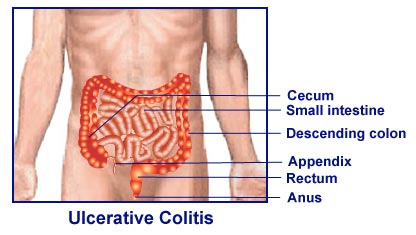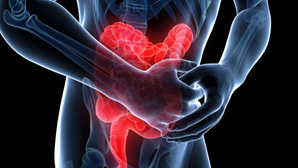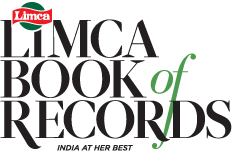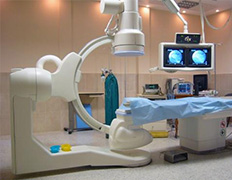Ulcerative Colitis
Ulcerative colitis is long-lasting disease that inflames the lining of the large intestine (the colon) and rectum. Ulcerative colitis usually affects people 15 to 30 years old. People with ulcerative colitis have tiny ulcers and small abscesses in their colon and rectum that flare up periodically and cause bloody stools and diarrhea.
Ulcerative colitis is characterized by alternating periods of flare-ups and remission, when the symptoms of the disease disappear. The periods of remission can last from weeks to years.
Inflammation usually begins in the rectum and then spreads to other segments of the colon. How much of the colon is affected varies from person to person. If it is limited to the rectum, the disease may be called ulcerative proctitis. Ulcerative colitis, unlike Crohn’s disease, does not affect the esophagus, stomach, or small intestine.
When grouped together, ulcerative colitis and Crohn’s disease are referred to as “inflammatory bowel disease,” because they cause inflammation of the bowel.
 What Are the Symptoms of Ulcerative Colitis?
What Are the Symptoms of Ulcerative Colitis?
Symptoms of ulcerative colitis may include:
- Blood or pus in diarrhea
- Dehydration
- Abdominal pain
- Fever
- Painful, urgent bowel movements
In addition, ulcerative colitis may be associated with weight loss, skin disorders, joint pain or soreness, eye problems, anemia (a deficiency in red blood cells), blood clots, and an increased risk for colon cancer.
What Causes Ulcerative Colitis?
The cause of ulcerative colitis remains unknown, but some researchers believe that an abnormal response of the immune system is involved in the development of the disease. A viral or bacterial infection of the colon may trigger the uncontrolled inflammation associated with ulcerative colitis.
Who Gets Ulcerative Colitis?
Ulcerative colitis can be inherited. Up to 20% of people with inflammatory bowel disease have a first-degree relative (mother, father, brother, sister) with the disease.
In addition, the disease is most common in the U.S. and northern Europe and in people of Jewish descent.
How Is Ulcerative Colitis Diagnosed?
A variety of diagnostic procedures and lab tests are used to distinguish ulcerative colitis from other conditions. First, your doctor will review your medical history and perform a complete physical exam. One or more of the following tests may be ordered:
- Endoscopy, such as colonoscopy or proctosigmoidocopy
- Blood tests
- Stool samples
- X-rays
How Is Ulcerative Colitis Treated?
Treatment for ulcerative colitis can include drug therapy, changes in diet, and/or surgery. Though treatments cannot cure ulcerative colitis, they can help most people lead normal lives.
It is important for you to seek treatment for ulcerative colitis as soon as you start having symptoms. If you have severe diarrhea and bleeding, hospitalization may be necessary to prevent or treat dehydration, reduce your symptoms, and ensure that you receive proper nutrition.
 Medications for Ulcerative Colitis
Medications for Ulcerative Colitis
Several types of medications, including sulfa drugs, corticosteroids, immunosuppressive agents, and antibiotics, are used to reduce inflammation of the bowel.
- 5-aminosalicylic acid (5-ASA). Mesalamine, balsalazide, and sulfasalazine are main medications used to treat ulcerative colitis. They come in pills and suppositories. Let your doctor know if you are allergic to sulfa before taking one of these drugs. He or she can prescribe a sulfa-free 5-ASA.
- Corticosteroids. These anti-inflammatory drugs can be used when 5-ASA drugs don’t help. Corticosteroids are also used to treat people who have more severe disease. The use of corticosteroids is limited by side effects and the potential of long-term complications. In general, corticosteroids are used for short periods of time to cause remission. Remission is maintained with a 5-ASA medication.
- Immunosuppressants. If corticosteroids or 5-ASA drugs are not effective, immunosuppressants, such as 6-mercaptopurine (6-MP), azathioprine (Imuran), cyclosporine, and tacrolimus (Prograf) may be prescribed.
- Tumor necrosis factor. This class of drugs includes adalimumab (Humira), certolizumab pegol (Cimzia), golimumab (Simponi), and infliximab (Remicade).
Our Expertise in Medical Services
Rana Hospital was started with a dream of providing the best facilities for Piles, Fissures, Fistula and all Anorectal problems.

Mon to Sat:
8:30 AM – 1:30 PM
4:00 PM – 6:30 PM
Mon to Sat:
9:00 AM – 1:30 PM
4:00 PM – 6:30 PM
Make an Appointment
 Accreditation & Awards
Accreditation & Awards
The Hospital organized a free checkup camp for PILES on 24th October 2013 in which 717 patients from all over India were examined. It was followed by one day free operation camp on 27th October 2013. Dr Suri single-handedly performed 391 free surgeries in 8 hours & 45 minutes setting a World Record.




